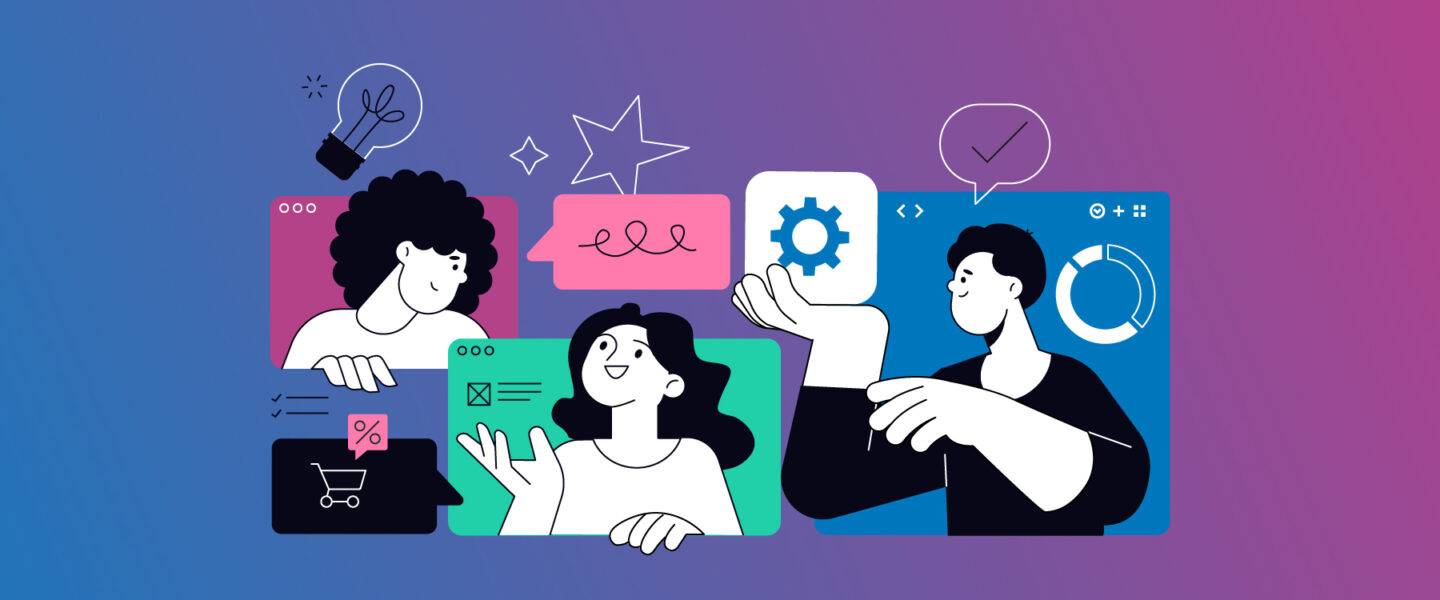
Adaptive content: The future of learning
January 18, 2024
Adaptive content and off-the-shelf learning solutions have emerged as powerful tools in the realm of business and professional development. In a rapidly evolving world, where skills and knowledge are in constant demand, these technologies offer a versatile and efficient approach to learning across a broad spectrum of skills and sector-specific knowledge.
Tailoring learning to individual needs
Adaptive content represents a paradigm shift in traditional learning models. This approach leverages technology to personalize the learning experience, recognizing that no two learners are the same and different learners have different training needs. The power of adaptability lies in the ability to meet each learner where they’re at and tailor content delivery, assessments, and feedback to match the needs of each learner.
Advantages of adaptive content
Adapting to differing skill levels
One of the key advantages of adaptive elearning is its ability to cater to different skill levels. Whether a learner is a novice or an expert, adaptive systems can adjust the difficulty of content dynamically. This ensures that learners are sufficiently challenged and receive appropriate remediation in the areas where they need it.
Reduced learner seat time
Reduced seat time goes hand in hand with course adaptivity. In addition to seeing more challenging content, learners who are performing well and responding to scenarios correctly will complete courses more quickly than learners who are struggling. This highly personalized approach to learning promotes increased learner engagement, reduced fatigue and frustration, and better educational outcomes.
Enhanced data
Furthermore, adaptive systems employ algorithms that analyze learner performance in real-time. This data is used to identify strengths and weaknesses within organizations, allowing for the creation of personalized learning paths and interventions. For example, if a learner excels in certain areas, the system may fast-track them through related content in subsequent training, optimizing time and focus.
Off-the-shelf learning: Quick, accessible knowledge acquisition
Off-the-shelf learning refers to ready-made learning that is readily available for use. These resources cover a wide array of topics and are designed to be accessible without extensive customization.
In the realm of skills and sector-specific knowledge, off-the-shelf learning provides a shortcut to acquiring essential competencies. Moreover, off-the-shelf learning often comes in various formats, including videos, interactive modules, and assessments. This diversity caters to different learning preferences, enhancing engagement and comprehension. Visual learners might benefit from video demonstrations, while interactive modules can provide hands-on experiences for those who learn by doing.
The scalability of off-the-shelf learning is another compelling feature. Organizations can deploy these resources across large groups of learners, ensuring a consistent and standardized knowledge base. This is particularly advantageous in sectors where compliance and adherence to industry standards are paramount, such as healthcare, finance, and information technology.
Synergy in learning: Combining adaptive and off-the-shelf learning
The true power in learning, risk management, and professional development lies in harnessing the synergies between adaptive content and off-the-shelf learning. By combining these approaches, learners can create a dynamic and efficient learning ecosystem.
Imagine a scenario where an adaptive elearning offering tailors a learning experience based on a learner’s initial assessment. Once the personalized learning path is established and behavioral insights are analyzed, off-the-shelf resources can be seamlessly integrated to provide in-depth, real-world examples and case studies. This combination offers the best of both worlds – the adaptability of personalized learning and the efficiency of readily available content.
This synergy caters to the dual needs of personalization and efficiency. Learners receive a personalized experience that is tailored to their specific training needs, while organizations benefit from streamlined and cost-effective training solutions.
Challenges and considerations
While the power of adaptive content and off-the-shelf learning is evident, challenges exist. One of the primary concerns is the need for robust technology infrastructure. Adaptive systems rely on sophisticated algorithms and real-time data processing, necessitating stable and secure platforms.
Additionally, the quality of off-the-shelf content can vary, and not all topics may be adequately covered – especially for organizations who need more specialized or nuanced coverage of a given topic area. Organizations must carefully curate resources to ensure relevance, accuracy, and alignment with learning objectives. This curation process demands ongoing effort to keep the content up-to-date in rapidly evolving fields.
Conclusion: A dynamic future of learning
In conclusion, the power of adaptive content and off-the-shelf learning is transforming organizations and professional development. The ability to tailor learning experiences to individual needs, combined with the accessibility and efficiency of ready-made content, creates a dynamic and versatile approach to acquiring skills and sector-specific knowledge.
As technology continues to advance, the future of learning is likely to become even more adaptive and accessible. The key will be finding the right balance between automated systems and human guidance, ensuring that learning remains a personalized and impactful journey for every learner.
In this evolving landscape, the synergy between adaptive elearning and off-the-shelf learning is poised to play a pivotal role in shaping the way we acquire and apply knowledge in the years to come.
Using predictive insights and behavioral intelligence, our adaptive content is delivering personalized learning experiences that make compliance training smarter. Find out how.
Got a learning problem to solve?
Get in touch to discover how we can help

